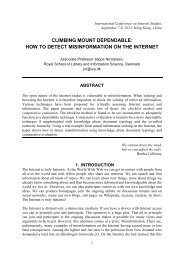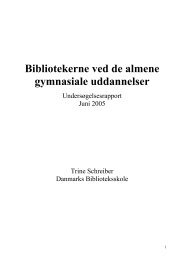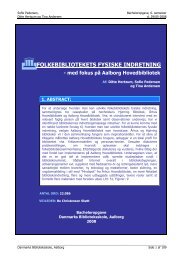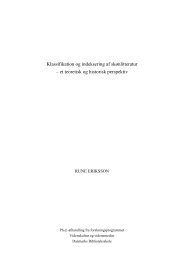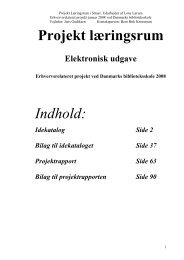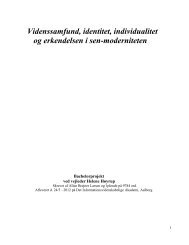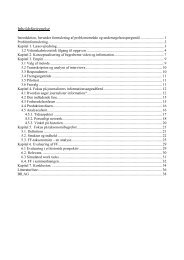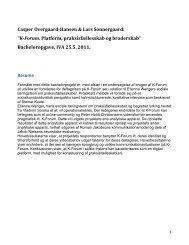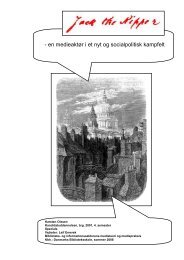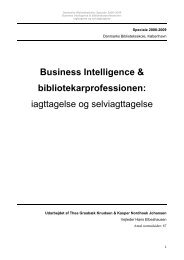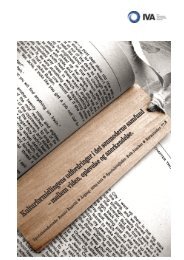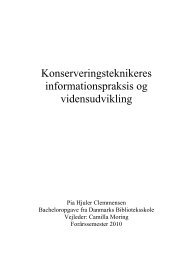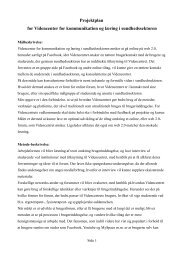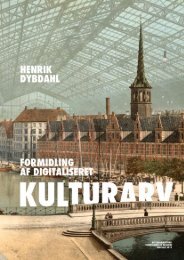Systembruddet som metode.pdf - Forskning
Systembruddet som metode.pdf - Forskning
Systembruddet som metode.pdf - Forskning
You also want an ePaper? Increase the reach of your titles
YUMPU automatically turns print PDFs into web optimized ePapers that Google loves.
Michael Meier Sørensen<br />
<strong>Systembruddet</strong> <strong>som</strong> <strong>metode</strong> – En transformation til ansvar og bevidsthed i senmoderniteten<br />
Det Informationsvidenskabelige Akademi<br />
The disruption of the system as a method<br />
- A transformation to accountability and awareness in the late modern era<br />
Abstract<br />
This master thesis investigates the hypothesis of change as a disruption of routines and habits (the<br />
system) in an attempt to operationalize a method of disrupting the system of Anthony Giddens’ late<br />
modern individual. The purpose is to create a new (self-)awareness and accountability in the late<br />
modern individual in order to ease its ability to accept change in a rapidly changing environment.<br />
The disruption of the system is presented as a synthesis between Giddens and the theories of Julia<br />
Kristeva’s ‘Powers of Horror’. The latter describes how people react when faced with the unknown<br />
and the in-between: the abject. This synthesis makes it possible to regard change, specifically the<br />
transformation of self, as <strong>som</strong>ething aesthetically horrifying and thus the late modern individual<br />
becomes what Kristeva describes as the deject.<br />
The master thesis then develops an overview of the processes in the disruption of the system by<br />
including among others Jørgen Stigels presentation of the aesthetics of experience. The deject’s<br />
construction of identity is investigated as a learning process, so similarities between the following<br />
learning theories are compared to the disruption of the system: learning by expanding (incl. Batesons<br />
double-bind theory), existential learning and transformative learning. The similarities are<br />
summarized as a type of transcendental learning in the disruption of the dejects system.<br />
With this in mind strategic reflexive conversation is evaluated as a method of controlling and<br />
operationalizing the disruption of the system. The internalizing of scenario planning as a new system<br />
for the deject is compared to similar ideas in Buddhist philosophy and finally presented as a possible<br />
draft of the new system of awareness and accountability the thesis set out to create in the deject.<br />
Due to the investigate purpose of this thesis, the ambitious nature of its subject and its many<br />
theoretical implications, it does not attempt to give conclusive answers but instead provides a<br />
theoretical and inspirational overview of surprising similarities and connections between the chosen<br />
theories.<br />
2/60



